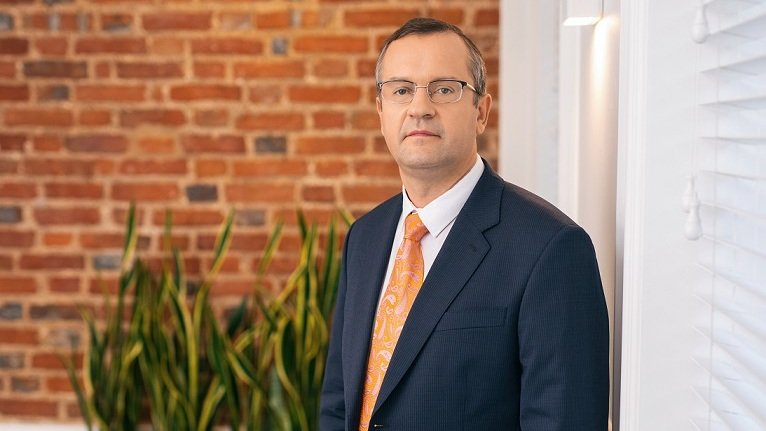www.industryemea.com
30
'22
Written on Modified on
Šiauliai free economic zone says Lithuania Is Open for Investment: the Most Effective Way to Enter Free Trade Zones
There are around 5,400 free trade zones (FTZs) around the world with special status, which allow investment and entry at a lower cost in the country of your choice. Following the peak of the coronavirus pandemic last year, foreign direct investment flows have returned to their pre-pandemic levels, according to the United Nations, reaching USD 1.6 trillion.

While the Russian-led war in Ukraine is leading to a triple crisis of food, fuel and finance, the UN predicts that the fragile growth in real productive investment will continue in 2022. With hundreds of investors flocking from Russia, Lithuania claims to be their relocation destination, offering an excellent business environment and FTZs with advanced (modern) infrastructure and lower taxes.
State competing with state
Investment and legal experts note that the most intense competition is between individual countries and the operating conditions they offer. However, it is worth paying attention even to such things as who administers the FTZ in order to gauge the level of bureaucracy and flexibility in advance.
“In the context of attracting investments, it is noted that Lithuanian and Latvian FTZs are in direct competition to attract investors, and Lithuanian FTZs that offer more attractive incentives to investors are more likely to win in this competition. It is also noted that unlike in Lithuania, Latvian FTZs are administered by state-owned companies rather than private companies, which makes the administration of these zones slow and complicated due to the bureaucratic hurdles that arise,” Evaldas Rapolas, partner at Magnusson, says.
According to him, the tax incentives in FTZs in Western countries are geared towards stimulating international trade through import and export taxes and customs duties respectively. By contrast, the free trade zones set up in the former post-Communist block countries offer reduced or zero income and property taxes and are designed to attract both industrial and service businesses, regardless of the nature of their activities, as the purpose of an FTZ is not primarily to stimulate a specific field of activity, but to stimulate a country's economy in general.
Giedrius Valuckas, chairman of the board of the Šiauliai FTZ, points out that although the administration of Lithuanian FTZs has been handed over to private business, the development of the zones themselves remains a priority for the development of the country as a whole and for the development of the country's economy, and that is why a lot of attention is being paid by the state to the investors who have chosen to use FTZs.
“FTZs have the necessary infrastructure and are attractions in terms of services, supply chains and talent attraction. However, investors who have chosen Lithuania in particular often emphasize the attention and care they feel at the national level, which objectively assesses how important they are for the country as a whole, not just for a specific region or economic sector,” Giedrius Valuckas, the chairman of the board of the Šiauliai FTZ says.
The average speed of start-up for green-field projects is 14 months, from site selection to start-up.

Evaldas Rapolas, partner for the international Baltic and Nordic law firm "Magnusson”.
Frontline or bulwark of Western values?
Russia's military aggression in Ukraine has led some investors to question other countries that have broken free from the Soviet Union's yoke. Lithuania, a small but absolutely pro-Western country, has taken key strategic decisions long before: it is a member of influential international organisations and an active participant, it has already abandoned Russia's energy resources in the past, and it is fully strengthening its infrastructural links and full cooperation with the West.
“We are indeed very dynamic and responsive to changing circumstances, and the favourable business environment and the fact that manufacturing accounts for 22% of the country's gross domestic product (GDP) creates a strong basis for investment development. We were the first European country to become energy independent from Russia, and Lithuania is distinguished by its well-developed infrastructure and logistics, linking land, water and air routes into a convenient network. We can offer human resources and convenient, fast and easily accessible locations, fast service to EU markets and exports between continents,” Giedrius Valuckas emphasises.
According to Magnusson, FTZs take much less time to settle down, as the infrastructure is already in place.
“Moreover, they tend to be located in attractive locations close to ports, airports and railways. Finally, companies located in FTZ territories considerably reduce the risk of starting a business in the first year of operation, as they receive tax incentives,” Evaldas Rapolas notes.
According to Giedrius Valuckas, chairman of the board of the Šiauliai FTZ, as energy and other resources become more and more expensive, the choice of starting or expanding operations in a free economic zone is a critical one in reducing costs.
www.siauliaifez.lt

